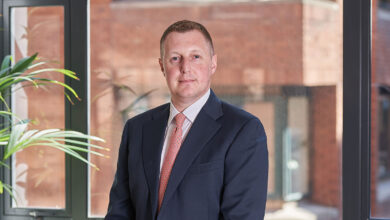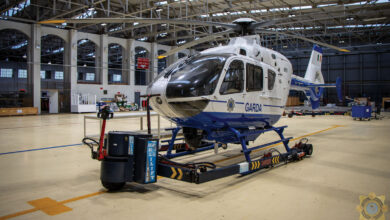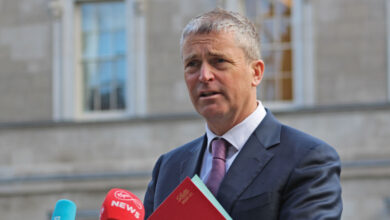Keeping People Safe
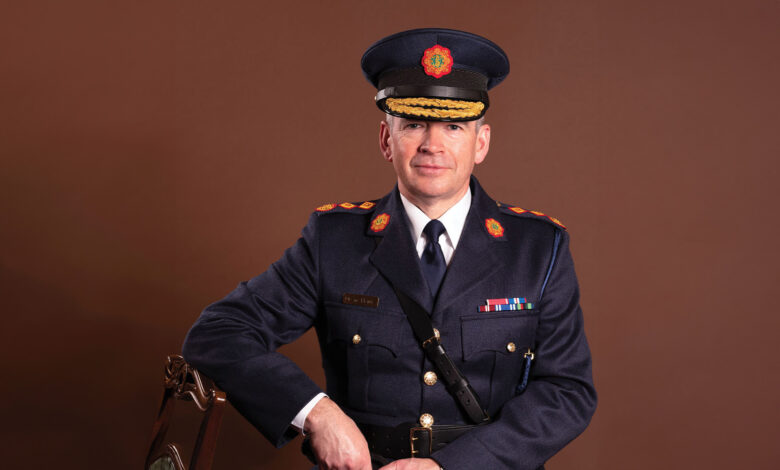
Drew Harris has held the position of Garda Commissioner since September 2018, and here he discusses An Garda Síochána’s Community Policing approach, and how policing in Ireland is adapting to respond to the needs of a modern and diverse society.
An Garda Síochána has a long established tradition of working closely with communities all across Ireland.
By fostering and maintaining effective community partnerships, An Garda Síochána works to reduce crime and the fear of crime in communities.
The general direction and control of An Garda Síochána is the responsibility of the Garda Commissioner who is appointed by the Government.
In the very early days of An Garda Síochána, 102 years ago now, the first Garda Commissioner delivered the following words that changed policing in Ireland for ever:
“The Garda Síochána will succeed not by force of arms or numbers, but on their moral authority as servants of the people.”
That statement by Commissioner Michael Staines in 1922 was in the midst of a bloody civil war that split families and at time when armed groups were pledged to overthrow the newly founded State and were as prophetic as they were brave.
Those words have been An Garda Síochána’s guiding star ever since.
We police with the people for the people. We police with their consent.
For An Garda Síochána, this means that outside of detectives and specialised armed response units, we are a largely unarmed police service. Being unarmed led An Garda Síochána to become trusted by both sides of the civil war as the independent guardians of the peace.
This led to An Garda Síochána becoming embedded in communities, where they were seen as an integral part of the community, and that, I am glad to say, continues today.
Gardaí are members of local sports clubs; visit schools; volunteer with community groups. They lend a helping hand to the needy. They treat individuals with empathy and respect, and they try to sort out issues before an arrest or criminal justice intervention is required.
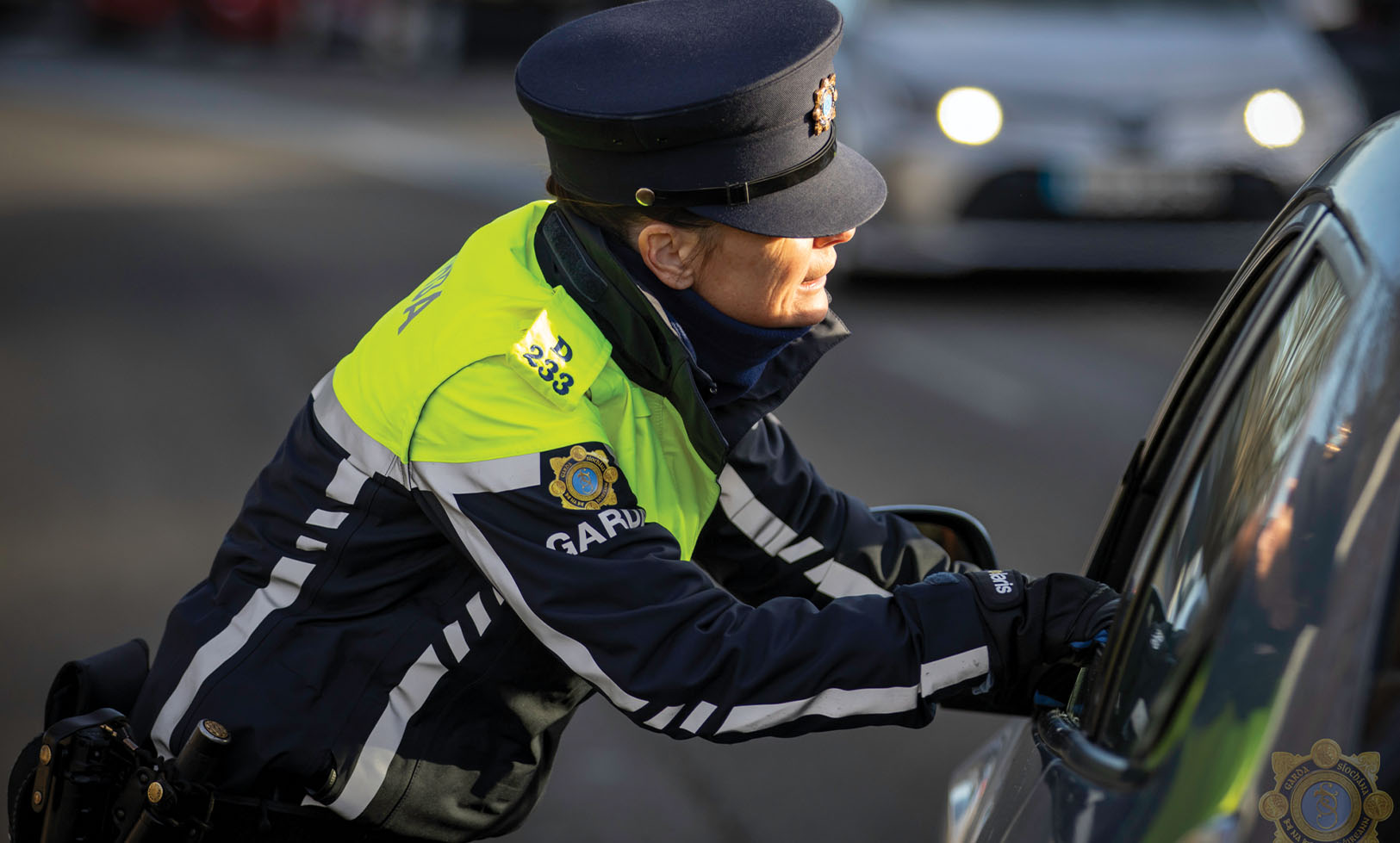 This activity came to the fore during Covid-19 when there was significant public fear and concern, and rapidly changing rules and regulations. Our role in policing the public health situation brought with it the potential to erode those strong bonds with communities. However, in providing public reassurance, supporting the vulnerable, being highly visible and available to people – with enforcement as a last resort, we saw public trust in An Garda Síochána increase.
This activity came to the fore during Covid-19 when there was significant public fear and concern, and rapidly changing rules and regulations. Our role in policing the public health situation brought with it the potential to erode those strong bonds with communities. However, in providing public reassurance, supporting the vulnerable, being highly visible and available to people – with enforcement as a last resort, we saw public trust in An Garda Síochána increase.
I must stress though, that it is important not to confuse community policing with being ‘soft and fluffy’.
“I consider myself very fortunate to lead an organisation with such dedicated, committed and professional personnel who on a daily basis go above and beyond.”
Drew Harris, Garda Commissioner
It is true that community engagement involves attending events, having a cup of tea and a chat with people, but this enables our gardaí to build a relationship with communities, earning their trust. It enables us to do what needs to be done to best serve those communities, whether that’s through community groups flagging concerns, or individuals coming to us in confidence about suspected criminal activity.
Now, at a time when policing legitimacy is under intense scrutiny, having the public’s trust is vital. We understand this more than most, because public trust in An Garda Síochána was not always as high as it is currently. We have had to rebuild that trust, through a major policing reform programme.
Under that reform programme, we have placed a strong emphasis on human-rights in policing. Garda personnel respecting and protecting the human rights of all individuals we come into contact with, actively enables us to keep people safe and helps ensure a just outcome for all.
Further to this, approximately 4,000 personnel will have completed a human rights and policing course we have developed with the University of Limerick, by the end of 2024.
Also through the Government reform programme we continue to strengthen our community links through our local community policing teams. These are made up of local Gardaí and community groups and work to identify and tackle crimes impacting their locality.
Meanwhile, community engagement units work within communities to tailor responses to their needs. And now, under the biggest restructuring of the organisation in its history, we have Superintendents in each Garda Division dedicated solely to community engagement.
This restructuring is also seeing police services that were solely delivered by national units now provided at local level in areas such as sexual crime and child abuse; cybercrime; and economic crime. This provides a higher quality of service locally delivered by highly trained experts in these fields.
One key element of community engagement not to be overlooked is victim support. While statutory obligations set out how we must deal with victims, we recognise we need to go beyond this.
In 2015, we introduced victim liaison offices across the country to ensure victims get key information on their cases and available support services.
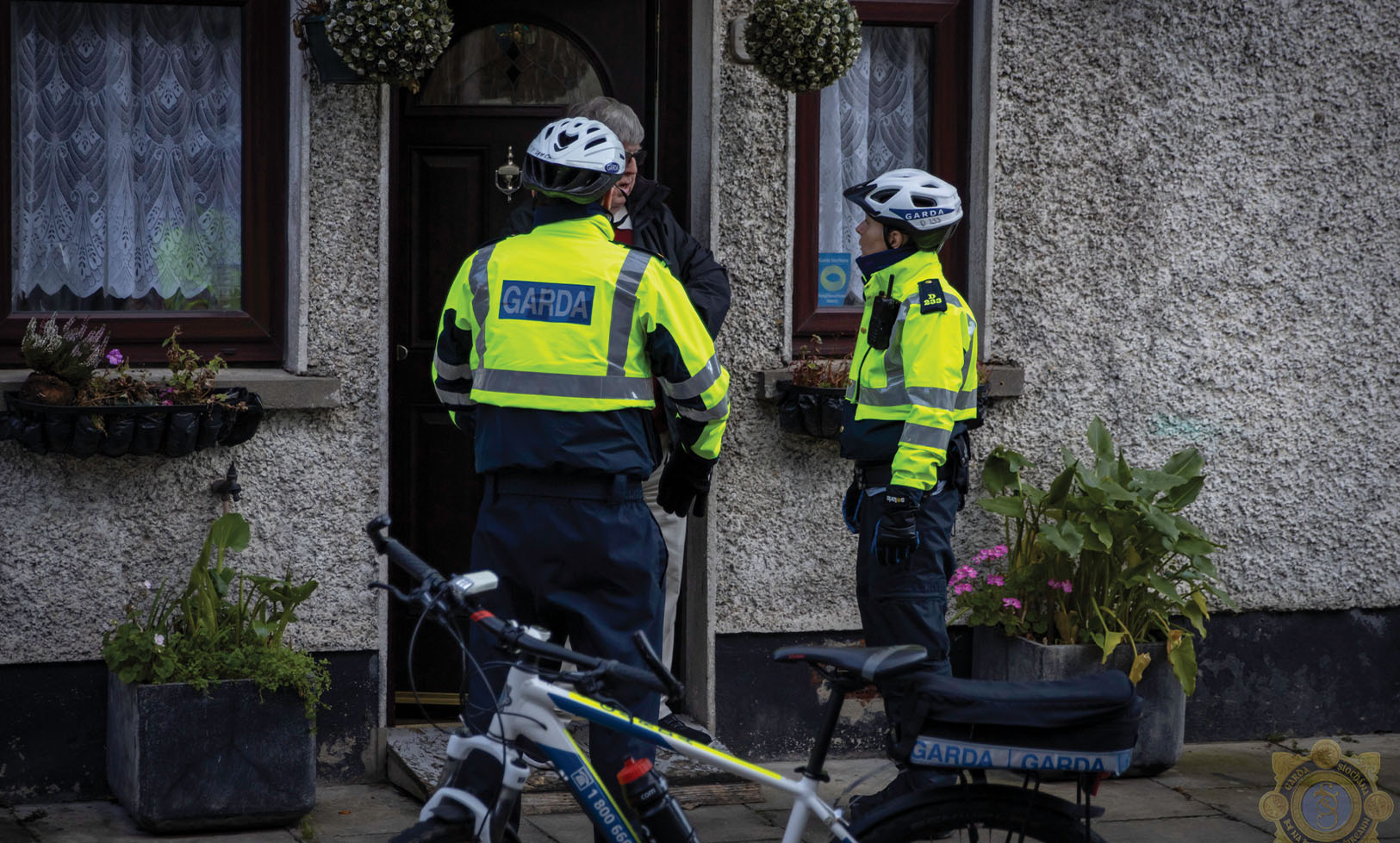
However, we do know from our Public Attitude Survey, many victims are not satisfied with the service we provide to them. This is something we are working to address.
One example is in the area of domestic abuse, where we know victims of crime are suffering behind closed doors and are reluctant to disclose to us.
In recognition of this, An Garda Síochána has introduced a policy where all those who report as a victim of domestic abuse receive a call-back within five working days.
Last year, we received nearly 60,000 domestic abuse calls, which represents a 10 per cent increase on the previous year. This indicates to us that confidence in reporting domestic abuse has gone up.
We have also invested in tailored training and more than 90 per cent of Gardaí who are first line responders to domestic abuse incidents are now trained to identify coercive control.
Of course as criminality evolves in a modern society, we too must be cognisant that in our ultra-connected world, local crime is often linked to international crime.
For instance, an online fraud that sees a pensioner in Dublin robbed of their life savings could be run by an international crime gang operating outside of Ireland, or a cyber-attack that cripples a local business might be orchestrated by hackers working from multiple foreign locations.
It is vital, therefore, that we work in partnership with our international policing colleagues to accelerate the sharing of intelligence and information, and utilise our combined expertise and experience, because as I have said many times, it takes a network to defeat a network.
One such example is our ongoing work with international colleagues in the US, UK, Spain and Europol to bring an end to the Kinahan Organised Crime Gang.
This OCG began in the 1980s as a small drug dealing gang in inner-city Dublin but has grown into an organised crime cartel operating in multiple countries with an estimated worth of €1 billion.
This wealth has been accumulated through murder and violence, and has brought misery to individuals and communities not only in Ireland, but in many other countries through drug dealing, intimidation, forced prostitution and human trafficking.
In recent years, An Garda Síochána has made significant in-roads into the gang through arrests of key figures and large drug seizures, cash and firearms. However, given its international scale, we knew that we would really impact on the very top of the organisation through co-operation with colleagues abroad.
In 2022, close to where the Kinahan Crime Gang first started to operate in Dublin, we announced a transnational effort to put this gang out of business including financial rewards for information leading to the arrest of its leadership.
Collectively, working closely with international colleagues including the Dubai Police, we continue to make major inroads towards bringing them to justice.
Of course, this is not to say that An Garda Síochána is perfect. We are not.
There are challenges we still need to address. Ireland is a rapidly changing society and we need to keep up with this. For instance, it is clear that the personnel make-up of An Garda Síochána is not reflective of the society we police.
We know when minority communities look at us, they go not see themselves reflected back, and for us this is something we are keen to address.
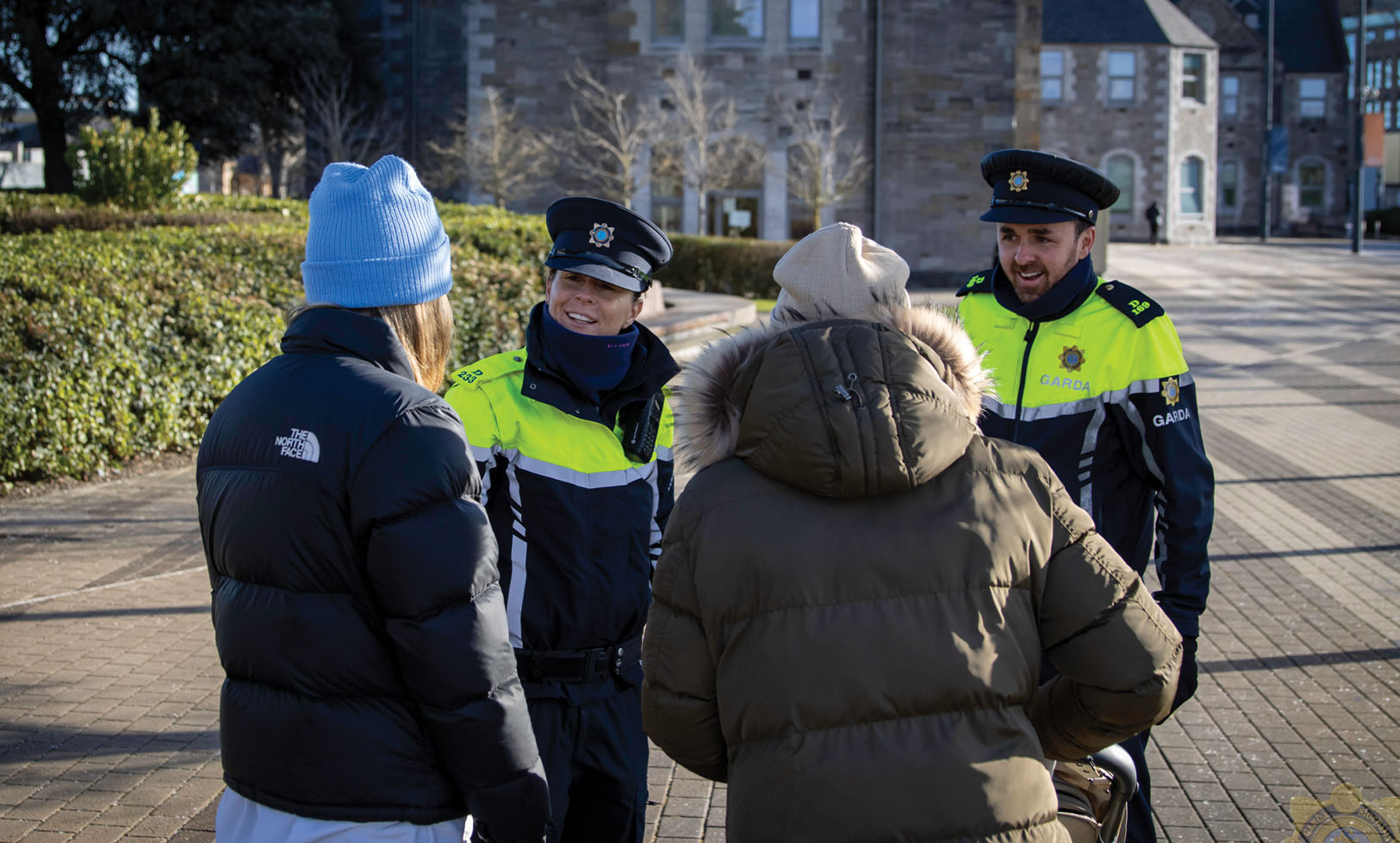
An Garda Síochána was one of the first police services in the world to establish a dedicated Diversity Unit, and today there are more than 500 diversity officers throughout the country actively engaging with minority communities and individuals, providing re-assurance and working to address concerns.
Meanwhile, our uniform policy has been updated to allow the wearing of official headwear for religious, cultural reasons and beliefs including the turban and hijab.
We have a Pride community car showing support for the LGBTQ+ community, and we have produced public safety information in multiple languages.
But the biggest difference we could make is to have more people from different communities and backgrounds join An Garda Síochána.
Our recent recruitment campaigns have placed a strong focus on attracting diverse candidates and it is starting to make a difference, but the reality is that it will take time before we can be truly reflective.
Of course the type of crime we are dealing with is changing too, and increasingly we are responding to threats posed to community harmony by the far-right, including the November 2023 riot in Dublin which, saw looting, vandalism, arson, and attacks on Gardaí, but thankfully no loss of life.
We are also seeing an increase in public disorder linked to sites and locations intended to house migrants.
We are having to adapt to respond to these situations, where we are working with local communities, community leaders and political representatives to marginalise the far-right’s impact, particularly to mitigate against the spread of mis- and dis-information.
As society changes and we see increasing numbers moving away from rural communities to urban areas, there is the potential for greater rural isolation. And we are committed to ensuring that vulnerable people do not get left behind.
This is why we are looking to modernise how we connect with communities. Be it face-to-face or in-station, contact remains critical and hopefully always will. However, we do need to provide an avenue for those who want to connect with us online. For instance, providing a mechanism for the public to send footage of road traffic incidents to us.
We are making improvements in this area and our world-leading mobility app is in the hands of every front-line officer, giving them instant access to a range information while on patrol.
We have also begun a proof-of-concept for body-cams that will provide protection to citizens and Gardaí. And when proposed legislation is passed, a digital evidence management system will enable the public to upload videos.
At the same time, we cannot and will not lose the human touch.
An Garda Síochána has built trusted relationships within communities by listening and learning; by engaging with empathy and respect; by being approachable and open and by ensuring our engagements are of the highest ethical standard that protects the human rights of all.
But, none of this is possible without having the right people. And in this regard, I consider myself very fortunate to lead an organisation with such dedicated, committed and professional personnel who on a daily basis go above and beyond.

W: www.garda.ie


